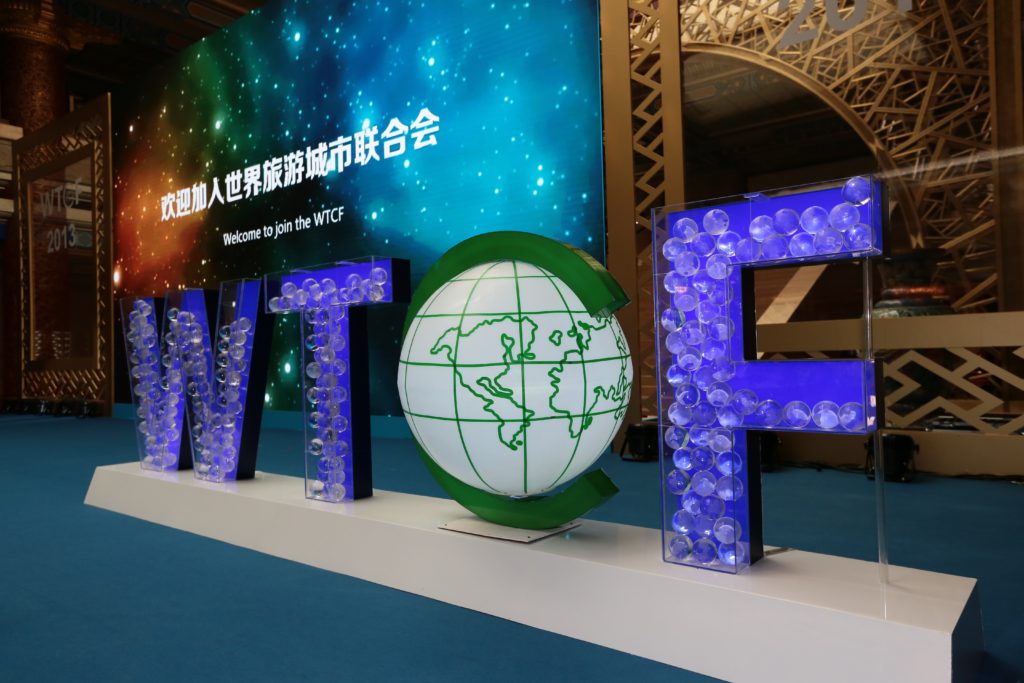This is a sponsored guest post from WTCF
By Dr. Tony Tongqian Zou
COVID-19 has caused the global tourism industry to experience similar impacts as were felt during 9/11, SARS, the global economic crisis, and Middle East respiratory syndrome. In the worst case, tourism revenue will lose $300-450 billion, nearly one third of the total. 100-120 million direct tourism jobs are at risk. Tourism is a highly labour-intensive industry with weak anti-risk capabilities. Under the normalization of COVID-19, the tourism industry should aim to do a good job of financial support, smart management, smart marketing, orderly opening, diversifying operations, and safety assurance. Here’s how to achieve it:
Carry out loss investigations and financial assistance to promote the resumption of production.
Tourism authorities should carry out investigations on the operating conditions and losses of enterprises in the industry, reasonably assess the degree of damage to the industry affected by COVID-19, and provide assistance such as tax reductions, exemptions and subsidies for resumption of production based on the enterprises’ payments. Secondly, rationally issue tourist vouchers and increase financial support for enterprises. Finally, encourage localities to take flexible vacations according to local conditions.
Speed up the construction of new tourism infrastructure and promote the upgrade of contactless services.
First of all, destinations should speed up the construction of new tourism infrastructure facilities. Secondly, enterprises such as scenic spots should strengthen intelligent service management. Use the platform to implement the reservation system for scenic spots, reasonably control the nuclear load, collect, analyze and predict activities such as high-density gathering, congestion, queuing, and trajectory in the scenic spot, and take timely measures to guide the flow of passengers, and realize the intelligent development of tourism management, operation, and experience. Finally, tourism companies should innovate artificial intelligence based contactless service technology.
Advocate tourism cloud marketing and promote the high-quality development of market segments. Innovate tourism marketing channels.
Plan “cloud” broadcasting to promote digital tourism products such as virtual scenic spots, cloud museums, and remote exhibitions. Invite influential people to live broadcast for the destination on content sharing platforms such as TikTok and Taobao Live according to local conditions, and reshape the image of tourism destinations after COVID-19, such as inviting local high-level leaders, celebrities, Internet celebrities, and even doctors to live broadcast for the destination to promote local specialties. Differentiation promotes the high-quality development of market segments. Build high-standard health-care tourism communities, strengthen the management and guidance of coastal and island resort hotels, improve the sanitary conditions of cruise ships and other high-end tourism transportation facilities, and promote the high-quality development of the tourism market segment after the epidemic.
Restart market at different levels and in different regions.
Destinations could cooperate and interconnect in a mutually beneficial way. Restart the tourism market by grading and zoning, and reasonably open surrounding rural and cultural scenic spots under safe and controllable condition. Cooperate with surrounding regions in an orderly manner. Unify the general standards for epidemic prevention, restart the tourism market from near to far, and promote the development of peripheral tourism to cross-city tourism and cross-provincial tourism.
Promote the transformation of tourism business model and attach importance to user value mining.
Develop diversified operations and expand the industrial chain. Second, develop digital cultural and creative products. Through AR, VR, digital media and other technologies, cultural IP will be made into cultural and creative products that meet consumer preferences. Pay attention to tapping consumer value, enhance the quality of experience, and increase user stickiness.
Establish and improve the public health mechanism, and jointly build an emergency management system.
Establish and improve public health mechanisms in tourist destinations. Strengthen cold chain food inspection and quarantine work. Improve the disinfection of tourist equipment and facilities. Implement the meal individual serving system for tourists and standardize hygiene standards. Improve the emergency management mechanism. Joint health, public security and other relevant departments to improve the management mechanism of emergencies. Enterprises, communities, and tourists jointly build a supervision and management network to implement health and safety supervision responsibilities. Strengthen the education and guidance of emergencies for enterprises and tourists, especially to strengthen the publicity and popularization of corresponding public health events.
Dr. Tony Tongqian Zou, Deputy Director, WTCF Expert Committee; Assistant President, Beijing International Studies University; Professor and Chair, China Academy of Culture and Tourism; Advisor for the Rector, Silk Road International University of Tourism(Uzbekistan)
